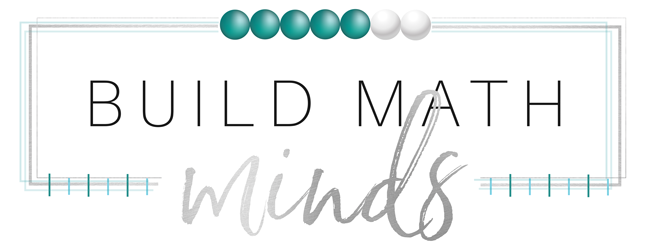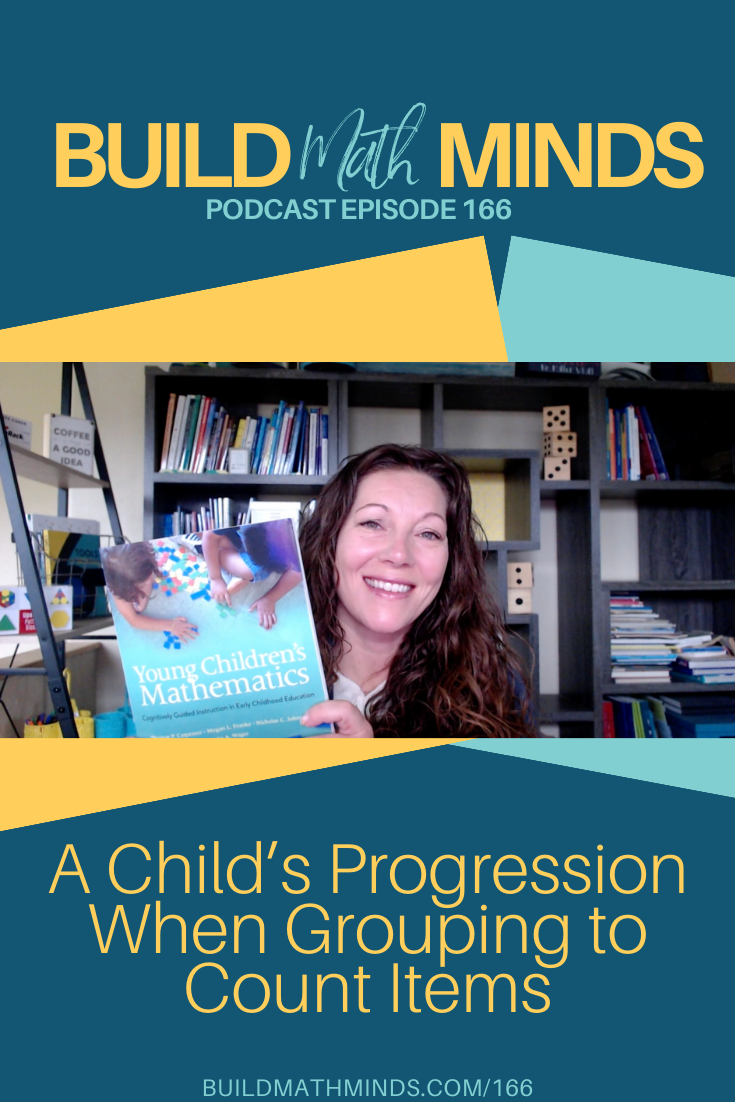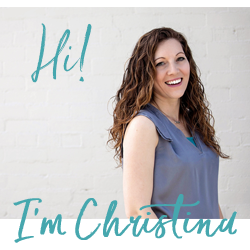Young Children’s Mathematics: Cognitively Guided Instruction in Early Childhood Education by Thomas Carpenter, et. al
Join the Waitlist for K-2 Flexibility Formula Course or the 3rd-5th Flexibility Formula Course
The youtube video for this episode
Welcome fellow Recovering Traditionalists to Episode 166: A Child’s Progression When Grouping to Count Items
This week’s positivity comes from my email inbox. After last week’s behind the scenes video about the move of my office, I got this email from Helene:

Thank you, Helene for this nice email and for all you are doing out there to help Build Math Minds.
In a few weeks I’ll be opening up registration to my online courses for teachers, The Flexibility Formula, which are all about how kids in K-5 build their flexibility with numbers. So I’ve been looking back through some of my favorite books that gave me the knowledge about how kids build their understanding of numbers.
If you’ve been around for a while you know how much I love Cognitively Guided Instruction. Their most popular book is Children’s Mathematics but after that book they also wrote Young Children’s Mathematics: Cognitively Guided Instruction in Early Childhood Education. I believe it’s important to know the whole progression of students’ learning of mathematics and so even though you might teach 3rd grade it’s important to know the trajectory of learning.
Towards the end of the book, in the chapter Extending Counting to Develop Grouping and Base-Ten Understanding, they lay out a progression of how kids group items when counting. We eventually want kids to group by 10s, 100s, etc or by groups that they could easily use their understanding of multiplication, however we can’t just jump right to that if they haven’t had experiences with counting sets that lead them into counting by those grouping systems. Throughout pages 130 to 136 the authors describe the progression but here is a summary:
- Grouping by an Attribute like color or size
- Grouping by a Quantity, typically one that is easy for them to skip count but might just use their favorite number instead
- In this stage some kids will count by the amount each group has but some kids are able to create equal sized groups but then need to count by 1s to determine the total
- Grouping by Tens
So how do you help students through this progression? Counting Experiences. On page 134, they write “…children themselves will naturally choose to group objects by quantities that make the task of counting easier. The more often students count larger collections, the more you’ll notice that they start grouping by tens.”
But one thing I want to hit on here is that these counting activities aren’t just about having them memorize the skip counting sequence of counting by tens. We use a Base Ten system so these counting experiences are an opportunity to help students really make sense of the structure of our number system. On page 136 they write:
“While children often learn to count by tens (or rather, count the decade numbers), often to 100, they do not necessarily connect a rote count of tens with the idea that each count of 1 ten contains 10 ones…Grouping by tens in a collection allows the child to see what the quantity looks like when they alternate between counting tens and ones— from counting 10, 20, 30 to 31, 32, 33 and so on. The collection is a context that makes sense to the child and supports them to engage in problem solving around counting different units.”
So yes, we need to be providing lots of counting collection opportunities for kids, but let them play around with groupings that make sense to them and as the quantity gets larger and larger your students will naturally find ways to group that make counting easier on them. As they start to group, and thus count, by tens help your students pay attention to the structure and groups that they are making and counting. That idea that 10 ones is also 1 ten is a huge deal. And make sure the counting collections have multiple units, so they have to consider 10s and 1s or as the collections get larger, 100s, 10s, and 1s.
Until next week my Fellow Recovering Traditionalists, keep Building Math Minds.




